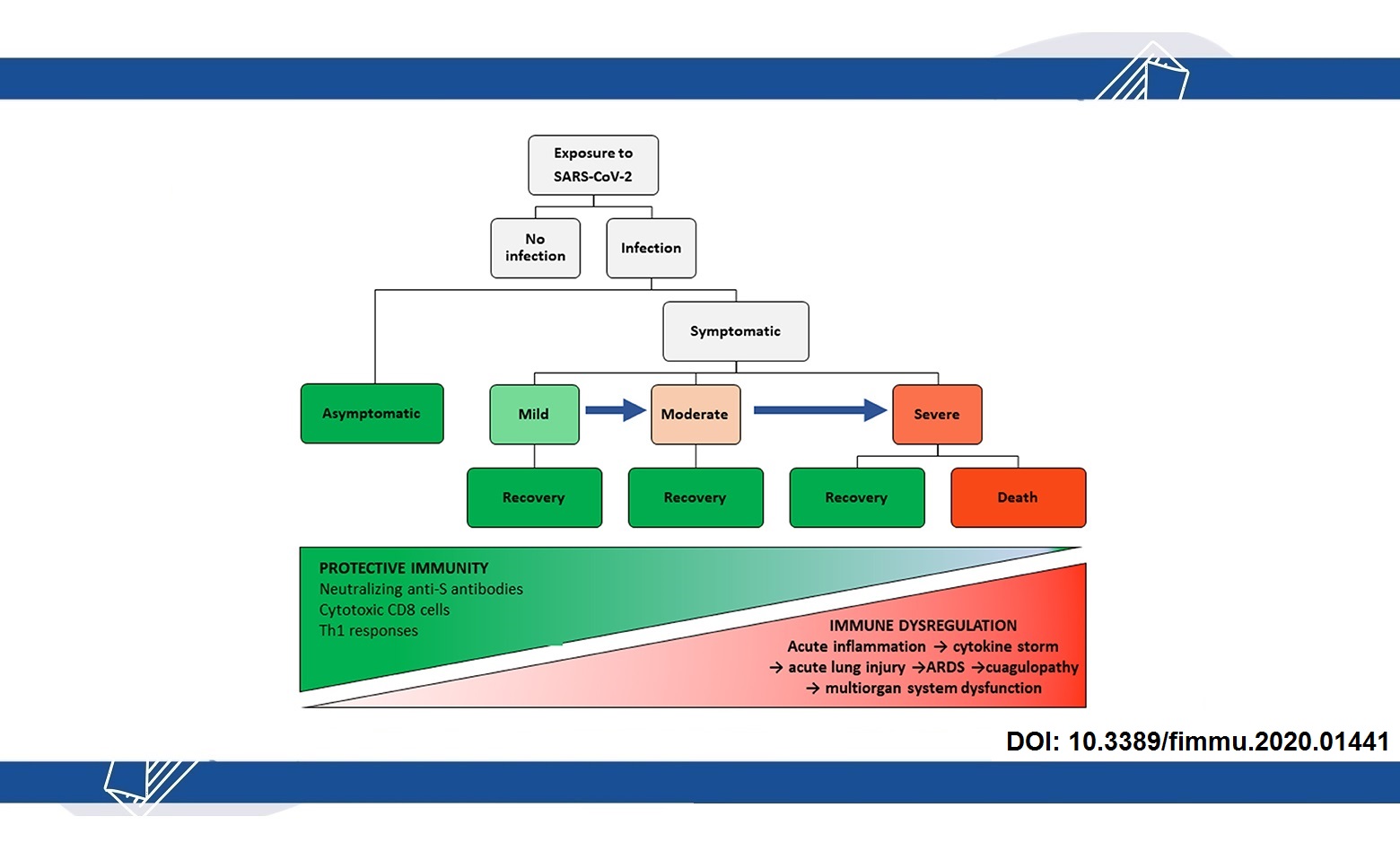
Scientists revealed insight of controlling severe COVID-19 situation and saving lives
- Post by: Dr. Monireh Bahrami
- April 10, 2021
- Comments off
Jeong Seok Lee & Eui-Cheol Shin of GENOME INSIGHT Inc. and Korea Advanced Institute of Science and Technology (KAIST) respectively, have recently described conditions of severe Covid19 patients and proposed strategies to control the severe condition and reduce the rising death rate due to coronavirus infection.
This work was published in Nature Reviews of Immunology, the leading reviews journal of immunology in the world.
The work has focused on the level of type I interferon response in severe COVID-19 patients whereas the type 1 interferon response is almost suppressed or delayed in early infection of covid19.
Therapeutic use of interferon administration in patients should depend upon the different stages of mild or severe COVID-19 infection: Study reported.
Lee & Shin have referred an early study of SARS-CoV-2 infection showing the limited IFN-I responses in comparison to the recent work indicating robust IFN-I responses in patients with severe COVID19.
It has been well documented that using different analytical approaches have presented different results indicating the necessity of comprehensive and comparative clinical research on severe covid19 patients and analysing the all aspects of molecular causes of death due to covid19.
The report also has mentioned more than 20 ongoing studies focusing on the early and late IFN responses expecting promising results which can help in the development of effective therapeutic strategies for severe Covid19 patients.
Read More about Herd Immunity
Understanding the strength of IFN-1 responses in mild versus severe COVID-19 and early versus late disease will be important for designing clinical studies for the treatment of patients with severe COVID-19. Concluded by the Published Comment.
Full text of reports is available here.
